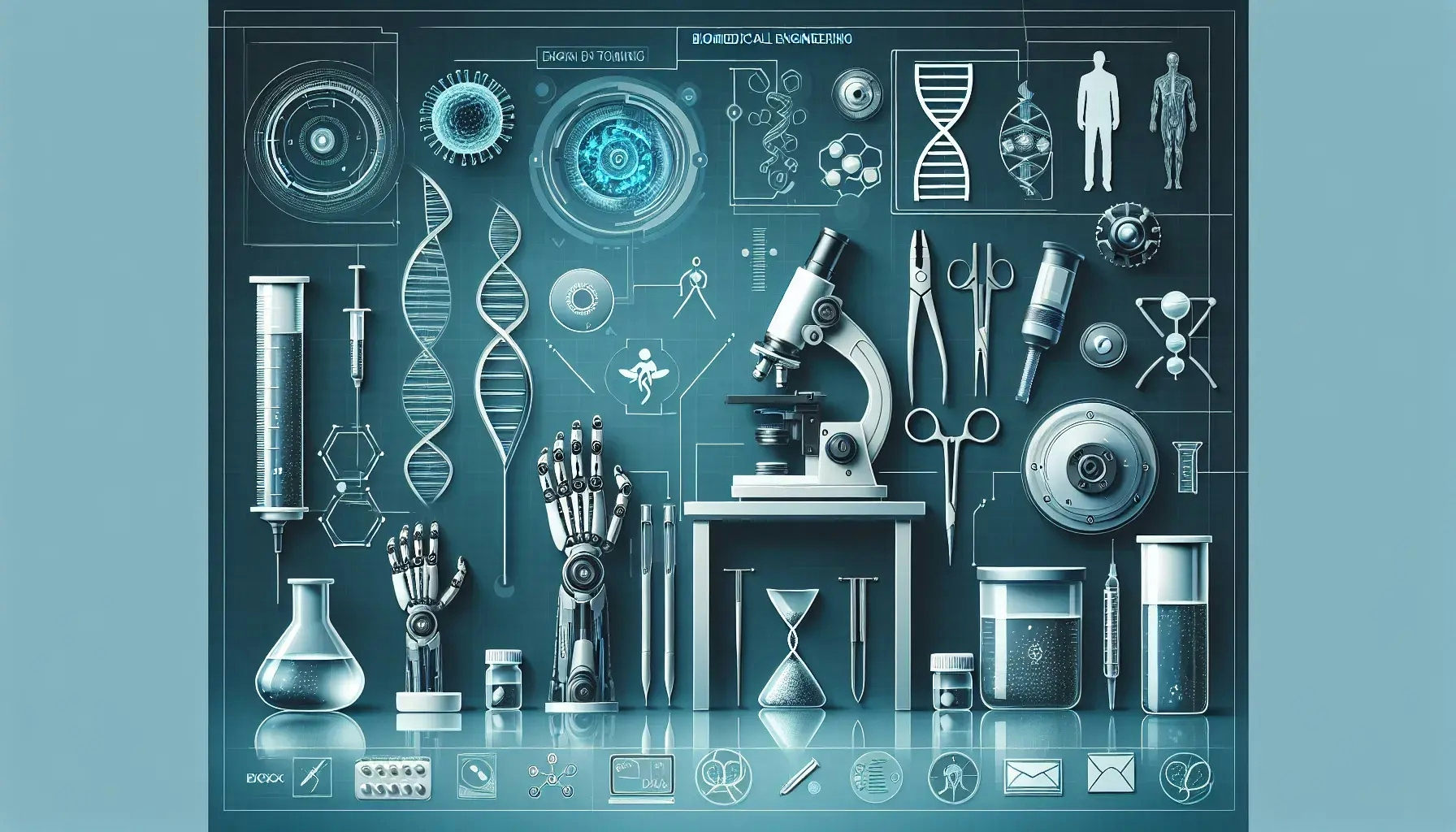The world is grappling with numerous health issues, from chronic diseases to pandemics. In this struggle, biomedical engineers have emerged as unsung heroes. They are leveraging their expertise to develop innovative solutions that address these global health challenges. This blog post delves into the various ways biomedical engineers are making a significant impact on global health.
Biomedical Engineering: A Brief Overview
Biomedical engineering is a multidisciplinary field that combines engineering principles with medical and biological sciences. It aims to improve healthcare diagnosis, monitoring, and therapy. Biomedical engineers design and create equipment, devices, computer systems, and software used in healthcare. Their work ranges from developing new diagnostic tools to designing state-of-the-art medical equipment.
Biomedical engineers are also involved in the management of technology in hospitals and healthcare delivery systems. They work in a variety of settings, including hospitals, universities, industry, and government regulatory agencies. Their unique skills and knowledge make them well-equipped to address various health challenges.
Combating Chronic Diseases
Chronic diseases such as heart disease, stroke, cancer, and diabetes are among the leading causes of death and disability worldwide. Biomedical engineers are at the forefront of developing technologies to manage and treat these diseases.
For instance, they have developed implantable devices like pacemakers and insulin pumps that help manage heart disease and diabetes, respectively. They are also working on creating artificial organs and tissues that can replace damaged ones, reducing the need for organ transplants.
Moreover, biomedical engineers are developing advanced imaging technologies that can detect diseases at an early stage, improving the chances of successful treatment. They are also creating telemedicine technologies that allow patients to receive care remotely, improving access to healthcare services.
Addressing Infectious Diseases
Infectious diseases, including HIV/AIDS, tuberculosis, and malaria, remain major global health challenges. More recently, the COVID-19 pandemic has underscored the importance of biomedical engineering in combating infectious diseases.
Biomedical engineers have played a crucial role in developing diagnostic tests for these diseases. They have also been instrumental in designing and manufacturing personal protective equipment (PPE) for healthcare workers. Additionally, they have contributed to the design and production of ventilators, which are critical for treating severe cases of COVID-19.
Furthermore, biomedical engineers are involved in the development of vaccines and therapeutics for infectious diseases. They are working on innovative drug delivery systems that can improve the effectiveness of these treatments.
Improving Global Health Equity
Health equity, the absence of avoidable or remediable differences among groups of people, is a major global health issue. Biomedical engineers are working to improve health equity by developing technologies that are affordable, accessible, and appropriate for use in low-resource settings.
For example, they are creating point-of-care diagnostic devices that can be used in remote areas without access to laboratories. They are also developing low-cost medical equipment that can be manufactured locally, reducing dependence on imports.
In addition, biomedical engineers are working on mobile health technologies that can deliver health information and services via mobile phones. This can help reach populations that have limited access to healthcare facilities.
Promoting Healthy Ageing
As the global population ages, there is a growing need for technologies that can support healthy ageing. Biomedical engineers are addressing this need by developing devices and systems that can help older adults maintain their health and independence.
For example, they are creating wearable devices that can monitor vital signs and detect falls. They are also developing assistive technologies that can help older adults with daily activities, such as mobility aids and communication devices.
Furthermore, biomedical engineers are working on telehealth technologies that can provide remote care to older adults, reducing the need for hospital visits. They are also researching technologies that can support the early detection and management of age-related diseases, such as dementia and osteoporosis.
Advancing Personalized Medicine
Personalized medicine, which tailors treatment to individual patients based on their genetic makeup and lifestyle, is a promising approach to improving health outcomes. Biomedical engineers are contributing to the advancement of personalized medicine in several ways.
They are developing technologies for genomic sequencing and analysis, which are essential for understanding individual genetic variations. They are also creating devices for continuous health monitoring, which can provide personalized feedback to patients and their healthcare providers.
Moreover, biomedical engineers are working on technologies for targeted drug delivery, which can improve the effectiveness of treatments while reducing side effects. They are also researching biomaterials and nanotechnology for use in personalized therapies.
Biomedical Engineers: Shaping the Future of Global Health
Biomedical engineers are playing a pivotal role in combating global health issues. They are developing innovative technologies that can diagnose and treat diseases, improve health equity, support healthy ageing, and advance personalized medicine. Their work is not only improving health outcomes but also transforming the way we deliver healthcare. As we continue to face new health challenges, the contributions of biomedical engineers will be more critical than ever.

